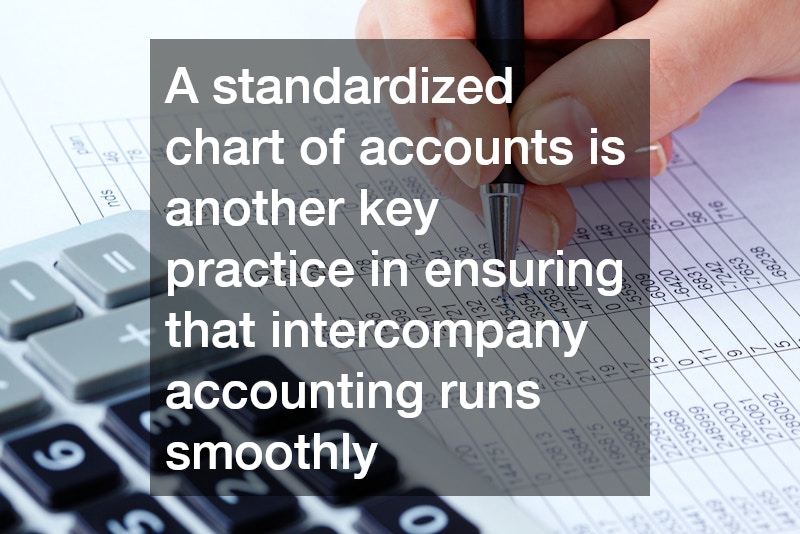Intercompany accounting is a vital aspect of financial management for organizations that operate with multiple subsidiaries, branches, or entities. Proper handling of intercompany transactions ensures accurate financial reporting, compliance, and efficient operations across all business units. However, intercompany accounting can also be complex, leading to discrepancies, errors, and inefficiencies if not managed correctly.
In this blog, we’ll explore the intercompany accounting best practices that can help businesses streamline their processes, maintain compliance, and improve overall financial accuracy.
1. Establish Clear Intercompany Policies and Procedures
One of the most important intercompany accounting best practices is establishing clear, company-wide policies and procedures for handling intercompany transactions. These policies should outline the proper methods for recording transactions, reconciling accounts, and allocating costs between entities.
Every business unit should understand the requirements for documenting and reporting intercompany activities to ensure consistency and transparency across the organization.
Documenting these policies and making them easily accessible to relevant teams helps prevent discrepancies and confusion. When everyone follows the same guidelines, it’s easier to track and reconcile transactions, which reduces the likelihood of errors that could compromise financial reports.
2. Implement Standardized Chart of Accounts
A standardized chart of accounts is another key practice in ensuring that intercompany accounting runs smoothly. When each entity within an organization uses the same chart of accounts, it becomes much easier to categorize and report transactions accurately. This consistency across the board helps avoid confusion and errors when consolidating financial data from multiple subsidiaries or branches.
Standardization also facilitates clear communication between departments and entities, ensuring that all transactions are recorded in a consistent manner. A unified chart of accounts allows for better visibility and more accurate tracking of intercompany activity, ultimately leading to more reliable financial reporting.
3. Automate Intercompany Accounting Processes
Automation is a powerful tool for simplifying and improving intercompany accounting processes. Manually tracking intercompany transactions can be time-consuming and prone to errors, especially in large organizations with numerous subsidiaries. By automating these processes, businesses can significantly reduce the risk of human error and save valuable time.
Many accounting software solutions are designed to automate intercompany transactions, reconcile accounts, and generate reports with minimal manual input. Automating these tasks ensures greater accuracy, improves efficiency, and allows the finance team to focus on more strategic activities.
Automation also helps with managing complex tax and compliance requirements, which are often a challenge in intercompany accounting. By using automated systems that are regularly updated to reflect current regulations, businesses can avoid penalties and maintain compliance with local and international tax laws.
4. Regularly Reconcile Intercompany Accounts
Frequent reconciliation of intercompany accounts is essential for identifying and resolving discrepancies early. One of the most common issues in intercompany accounting is when transactions recorded in one entity do not match the corresponding entries in another entity. These mismatches can result in inaccurate financial reporting and create significant challenges during audits or tax filing.
To avoid these issues, organizations should establish a regular reconciliation schedule. Reconciling intercompany accounts monthly or quarterly ensures that discrepancies are caught and resolved promptly, preventing them from escalating into larger problems. Regular reconciliations also make it easier to prepare for the end-of-year financial close, as any discrepancies will already have been addressed throughout the year.
5. Ensure Compliance with Tax and Legal Regulations
Intercompany transactions are subject to tax and legal regulations that vary depending on the jurisdiction. For businesses with global operations, this means ensuring compliance with the tax laws of each country where they operate. Failing to adhere to these regulations can result in financial penalties, audits, or legal action.
One of the best intercompany accounting best practices is to stay informed about current tax laws and regulations that apply to intercompany transactions. Working with tax professionals or legal advisors familiar with the relevant jurisdictions can help ensure compliance and avoid potential issues. In addition, many accounting software platforms offer built-in compliance features that can automatically apply the correct tax rates and rules to intercompany transactions, further reducing the risk of errors.
6. Use Transfer Pricing Agreements
Transfer pricing agreements are a critical component of intercompany accounting, particularly for multinational corporations. These agreements outline the pricing policies for goods, services, and intellectual property exchanged between related entities. Establishing clear transfer pricing agreements ensures that intercompany transactions are conducted fairly and comply with tax regulations.
When pricing between subsidiaries or branches is not managed appropriately, companies can face challenges from tax authorities who may claim that the transactions are not at arm’s length, resulting in potential adjustments, penalties, and increased tax liabilities. By implementing clear and compliant transfer pricing policies, businesses can protect themselves from these risks and maintain proper intercompany financial practices.
7. Conduct Regular Internal Audits
Regular internal audits of intercompany transactions are another important practice to ensure accuracy and compliance. Audits allow organizations to review their processes, identify inefficiencies, and detect any potential issues before they escalate. By conducting audits regularly, businesses can ensure that their intercompany accounting practices align with company policies, legal requirements, and industry standards.
These audits can also help in identifying areas for improvement, such as opportunities to further automate processes or tighten control mechanisms. A strong audit process helps organizations maintain financial transparency and ensures that their intercompany accounting practices are robust and compliant.
.

